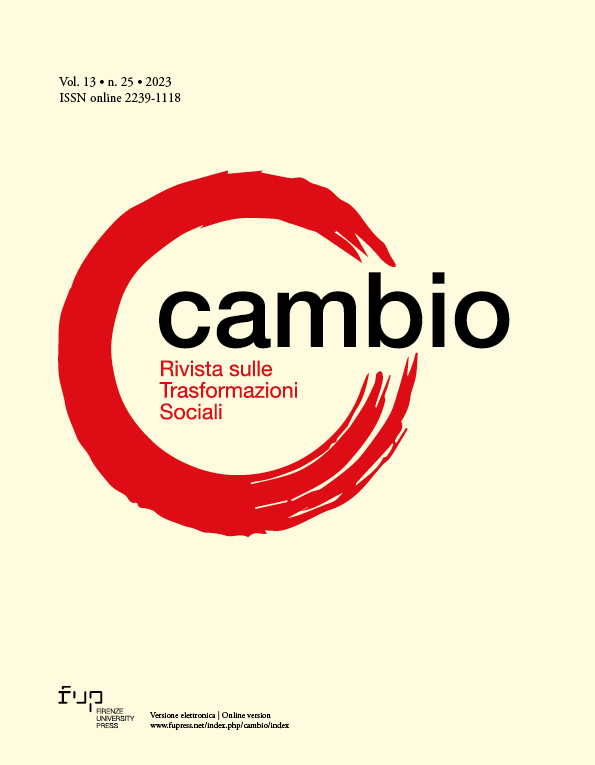Published 2023-10-31
Keywords
- cancel culture,
- culture wars,
- identity politics,
- social justice movements
How to Cite
Copyright (c) 2023 Fabio Dei

This work is licensed under a Creative Commons Attribution 4.0 International License.
Abstract
The following contribution analyzes the controversies surrounding the so-called cancel culture, which arose within the “culture wars” in the United States. These wars pit ultraconservative and anti-liberal movements, which support religious fundamentalism, xenophobia, and extreme nationalism, against movements that fight for social justice and minority rights. Cancel culture is part of this struggle and involves the practice of canceling, revising, or inventing aspects of the past to support dominant views in the present. This struggle is based on identity politics, interpreting social justice based on belonging to specific social groups, such as race, gender, and sexual orientation, often ignoring social class. The “third wave” of social justice movements develops in a context where equal rights are widely recognized, and anti-racism and inequality ideologies are hegemonic. This has transformed the nature and strategies of the movements, which now focus on symbolic and communicative actions, fueling political correctness in a more invasive way. The most well-known cases of cancel culture also fuel conservative propaganda and provide them with the opportunity to present themselves as defenders of free speech. From the perspective of social sciences and anthropology, the phenomenon of cancel culture raises two aspects of interest: the first concerns the influence of activism on social theory and research methodology, which can lead to ideological caricatures; the second concerns the creation of an atmosphere of suspicion, accusations, and confessions in public spheres, which connects to the Puritan roots of Anglo-American culture.

